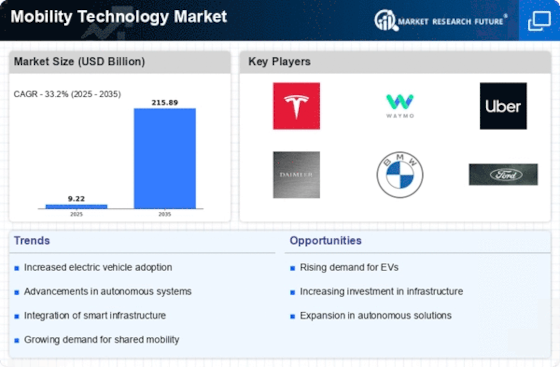Market Share
Mobility Technology Market Share Analysis
The market trends in the Mobility Technology sector have been undergoing significant transformations, reshaping the way people and goods move. One prominent trend is the accelerated development of electric vehicles (EVs) as a sustainable alternative to traditional combustion engine vehicles. With growing environmental concerns and an increased emphasis on clean energy, the demand for electric cars has surged, prompting major automotive manufacturers to invest heavily in research and development to enhance battery efficiency and extend driving ranges.
Moreover, the rise of autonomous vehicles is another noteworthy trend. Companies are actively exploring and investing in self-driving technology, aiming to redefine transportation by eliminating the need for human drivers. This shift not only promises increased safety but also opens up possibilities for new business models such as ride-sharing services without the need for human drivers. However, regulatory challenges and public trust remain hurdles for the widespread adoption of autonomous vehicles.
In the realm of urban mobility, the emergence of micro-mobility solutions is gaining momentum. Shared electric scooters, bicycles, and other small-scale transportation options are becoming increasingly popular, particularly in urban areas where congestion and environmental concerns are pressing issues. This trend is driven by the desire for more sustainable and convenient modes of transportation for short distances, contributing to the overall goal of creating smarter and more livable cities.
The connectivity revolution is yet another key trend shaping the mobility technology market. The integration of advanced connectivity features, such as 5G connectivity and the Internet of Things (IoT), is transforming vehicles into interconnected platforms. This not only enhances the driving experience but also enables real-time data sharing between vehicles, infrastructure, and other smart devices. This connectivity is crucial for the development of smart cities and paves the way for innovations in traffic management, predictive maintenance, and enhanced safety features.
Furthermore, the Mobility-as-a-Service (MaaS) concept is gaining traction. MaaS integrates various forms of transportation services into a single, accessible platform, allowing users to plan, book, and pay for their journeys seamlessly. This trend aligns with the growing preference for on-demand, flexible transportation solutions and is driven by advancements in mobile technology and digital payment systems.
The market also witnesses a surge in the adoption of sustainable logistics solutions. E-commerce growth and the increasing demand for quicker deliveries have led to a rise in electric delivery vehicles and last-mile delivery solutions. Companies are exploring eco-friendly alternatives to traditional delivery methods, aiming to reduce their carbon footprint and align with global sustainability goals.
In conclusion, the mobility technology market is experiencing dynamic shifts driven by technological advancements, environmental concerns, and changing consumer preferences. The rise of electric vehicles, autonomous technology, micro-mobility solutions, connectivity, MaaS, and sustainable logistics are all contributing to a transformative landscape. As these trends continue to evolve, industry players need to stay agile, adapt to regulatory changes, and invest in innovation to capitalize on the immense opportunities within the mobility technology sector.


















Leave a Comment